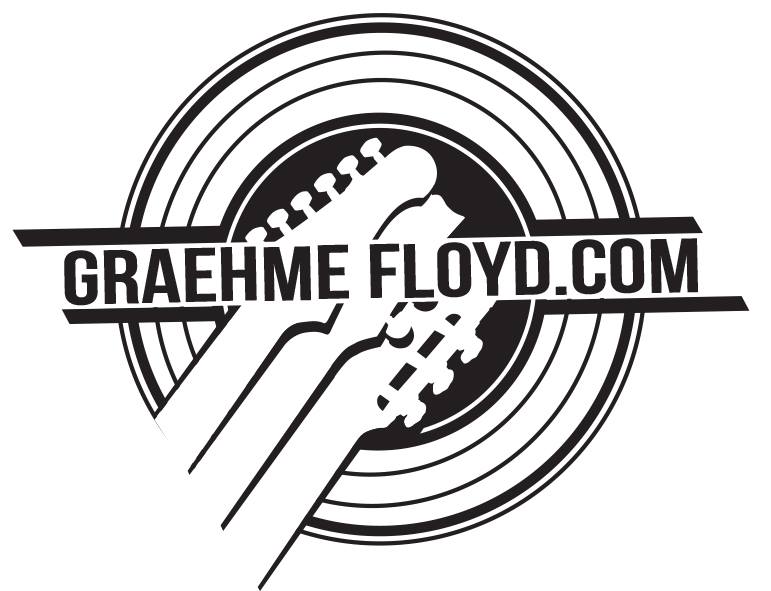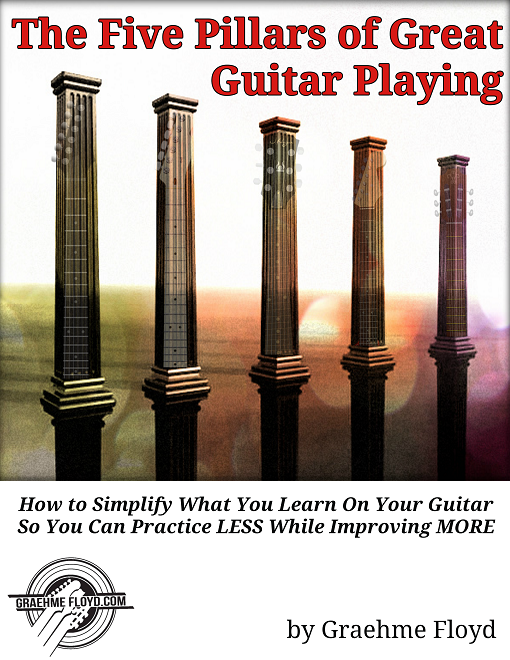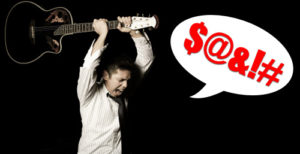 I’ve studied with a music teacher ever since I began playing piano at 8 years old. Over the years, there were some things that my teachers taught me which helped me improve a little bit at a time, some things I used every day, and some things which never really helped at all. However, they were a few key important ideas that I had to figure out for myself just by working through the material they gave me.
I’ve studied with a music teacher ever since I began playing piano at 8 years old. Over the years, there were some things that my teachers taught me which helped me improve a little bit at a time, some things I used every day, and some things which never really helped at all. However, they were a few key important ideas that I had to figure out for myself just by working through the material they gave me.
Looking back, had I known these simple truths, I would have saved myself a lot of wasted practice time and energy; they would have taken me down a much faster path to reaching my own goals as a guitarist.
In this article, I wanted to share with you nine key ideas that took me years to realize about music and the guitar that I really wish my own teachers had taught me right from the start. Hopefully, they will help to save you years of frustration:
1. Know Your Chords
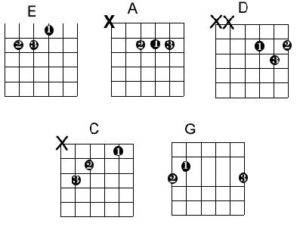 When it comes to playing real music, especially playing on stage, you are going to be spending about 95% of your time playing rhythm; as much as I love soloing, this is the reality of being a guitarist. Depending on the style of music that you play, what makes up those rhythm parts can vary considerable, but what connects them together is that all styles need chords.
When it comes to playing real music, especially playing on stage, you are going to be spending about 95% of your time playing rhythm; as much as I love soloing, this is the reality of being a guitarist. Depending on the style of music that you play, what makes up those rhythm parts can vary considerable, but what connects them together is that all styles need chords.
I remember getting a huge wake-up call about this very thing when I starting playing with my first real working band. After our first practice session together I knew that my knowledge of chords wasn’t very good – in fact it was downright terrible. Up until then, I had pretty much ignored working on learning chords because it wasn’t as fun as playing the riffs, licks, and solos from the songs that I liked. I immediately changed my focus so that I knew enough about chording to make sure I didn’t embarrass myself or, even worse, get fired from the band.
You don’t have to know every single chord that’s out there, but if you want to be a great guitarist, you’re going to at least know the basics, specifically open chords. This leads to the next point…
2. Don’t Just Memorize Chords, Understand Them
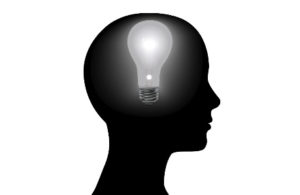 In my earlier days as a guitarist, I remember thinking that if I could only memorize all the chords of the guitar, I would become a great player. The only problem is that there are far too many chords on the guitar to try and memorize them all. In my rather poor attempt to try, I was only able to memorize about 50 or so before I would start forgetting new ones. The truth is that trying to memorize every chord is a waste of time. But, then how do the great players know how to play so many different chords?
In my earlier days as a guitarist, I remember thinking that if I could only memorize all the chords of the guitar, I would become a great player. The only problem is that there are far too many chords on the guitar to try and memorize them all. In my rather poor attempt to try, I was only able to memorize about 50 or so before I would start forgetting new ones. The truth is that trying to memorize every chord is a waste of time. But, then how do the great players know how to play so many different chords?
The secret is that they haven’t memorized them all, but have instead learned to generate any chord they need from a small group of simple chords. That small group is the five original open Major chords that every beginner guitarist has to learn: C, A, G, E, D. Every other chord you could every possibly play can be built by manipulating those original five chords!
It isn’t enough to just know this concept to make use of it; you’re going to have to learn how to change those five chords to get what you want and practice a lot. But, the thing is that using this method to learn chords will eventually get you to a point where you can play thousands of different chords in a moments notice.
3. Be Able to Count
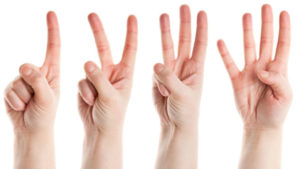 if you play the right thing at the wrong time, it’s wrong. There no getting around that that fact.
if you play the right thing at the wrong time, it’s wrong. There no getting around that that fact.
The most important fundamental skill you must have with regards to time is the ability to count rhythm; yes, this means being able to say “1 AND 2 AND 3 AND 4 AND” as you are playing. In some cases, counting will make the difference between success and failure.
Counting time for musicians is like counting apples for normal people and you develop both skills exactly the same way: Start with simple counting exercises (whole notes, half notes, and quarter notes) and work slowly, doing a little bit every day – 5 minutes is fine. Increase the difficulty as you become comfortable with the exercises and steadily add in more difficult rhythms (eighth notes, sixteenth notes, triplets, etc.)
You can also use your counting skills to help you with the next point…
4. Develop Your Time Sense
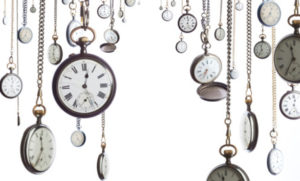 Time sense is your ability to connect with the time of music. It involves a number of different skills such as being able to play at a consistent tempo without a drummer, having the ability to hear different kinds of subdivisions (eighth notes, sixteenth notes, triplets, etc.), and remaining aware of where you are rhythmically in the music (beat, bar, section, etc.) Unfortunately, time sense seems to be the one skill that is most lacking from the majority of guitarist.
Time sense is your ability to connect with the time of music. It involves a number of different skills such as being able to play at a consistent tempo without a drummer, having the ability to hear different kinds of subdivisions (eighth notes, sixteenth notes, triplets, etc.), and remaining aware of where you are rhythmically in the music (beat, bar, section, etc.) Unfortunately, time sense seems to be the one skill that is most lacking from the majority of guitarist.
To improve your time sense, I recommend using the ‘Three-Way Rhythm’ approach that I presented in Do You Have Rhythmitis? Once you have learned this method, apply to everything you that you play.
5. Know the Notes of the Guitar
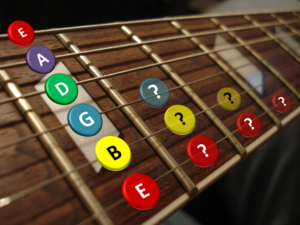 After time, knowing the notes of your guitar’s fretboard is the things that most guitarist struggle with and with good reason; learning the notes of the guitar is really friggin’ hard! It isn’t as easy as it is on other instruments and took me about 10 years to master – thought it shouldn’t have.
After time, knowing the notes of your guitar’s fretboard is the things that most guitarist struggle with and with good reason; learning the notes of the guitar is really friggin’ hard! It isn’t as easy as it is on other instruments and took me about 10 years to master – thought it shouldn’t have.
There are a pile of good reasons why you should know the notes of your guitar, but to put simply, it just makes everything else easier and make more sense.
If you find yourself struggling to learn the notes of the your fretboard, take a look at Finally Learn the Notes of Your Guitar. It is THE most efficient and effective way to completely memorize the notes on your guitar. I have had students master the notes of the guitar in as little as 6 weeks after they started using this method!
6. Standard Notation
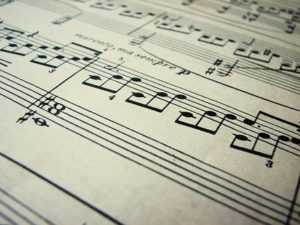 Reading music is another fiercely debated skill for guitarists; some say you don’t need it, others say it should be used exclusively. While I don’t go to either of those extremes, I believe that you must be a literate musician if you want to be a great guitarist – you need to be able to read. As with knowing the notes of the fretboard, it just makes things easier.
Reading music is another fiercely debated skill for guitarists; some say you don’t need it, others say it should be used exclusively. While I don’t go to either of those extremes, I believe that you must be a literate musician if you want to be a great guitarist – you need to be able to read. As with knowing the notes of the fretboard, it just makes things easier.
If you read my article 7 Reasons to Master the Notes of Your Guitar, then you’ll remember that part of the reason why reading standard notation is so difficult for guitarists is that they don’t know the note names first. Before you try to force yourself to read musical notation, do yourself a favor and learn the notes of your guitar first. It will save you one hell of a big headache and a lot of frustration.
7. Make Everything Musical
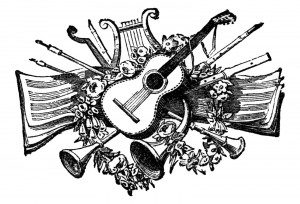 The overall end goal of learning to play guitar is to play music. What you do with that music once you can play it is up to you. Whether you decide to just play along to your favorite tracks in your basement or step on stage in front of thousands of people with your band, you still have to be able play actual music.
The overall end goal of learning to play guitar is to play music. What you do with that music once you can play it is up to you. Whether you decide to just play along to your favorite tracks in your basement or step on stage in front of thousands of people with your band, you still have to be able play actual music.
That being said, you need to make sure that whatever you work on, spend time making it musical; apply it in songs or create something new.
Nowhere is this forgotten more then when practicing guitar technique. Instead of burning through mindless chromatic exercises to build your chops, apply your technique to a simple scale or arpeggio. You can still improve your technique and you will also be developing ideas that could be used in real music.
8. Chords and Scales Work Together
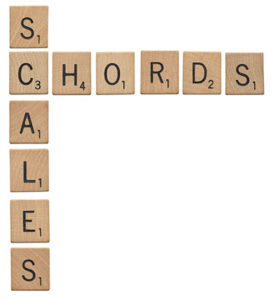 Believe or not, but chords and scales are essentially the same thing. This was the conclusion that I came to after nearly two decades of learning music and playing the guitar. You might be thinking, “That makes absolutely no sense at all,” and when I first started playing the guitar I would have agreed with you. However, as you learn more about theory and the more complex types of chords that are out there, you see that it’s totally true.
Believe or not, but chords and scales are essentially the same thing. This was the conclusion that I came to after nearly two decades of learning music and playing the guitar. You might be thinking, “That makes absolutely no sense at all,” and when I first started playing the guitar I would have agreed with you. However, as you learn more about theory and the more complex types of chords that are out there, you see that it’s totally true.
‘Harmonization of a Scale’ is when you create a set of chords from a scale or key. Pretty much all of the music you hear anywhere, with the exception of some kinds of free-form and atonal music, follow this basic idea. If you’ve ever wondered why certain chords always seem to show up in songs together (like C, G, and D) this is why; they are related by a common scale or key.

When you build up your chords enough, you end up putting all 7 notes of your scale or key in that chord; the chord has become the scale. An example of this kind of chord would be a C7(9,#11,13) – it contains 7 notes, specifically the notes from the key of F Major.
Why is this important? Put simply, when you start to focus on learning the way chords and scales work together, because they are indeed the same thing, some very interesting possibilities begin to appear. You are able to layer your chord and scale patterns together and it makes remembering where to play on the fretboard significantly easier.
If this sounds like complete nonsense, I suggest you start by working on the Minor Pentatonic positions and how they relate to the moveable Minor chords; it’s more than coincidence that there are 5 of each of them.
9. Technique Isn’t Everything – Be a Balanced Player
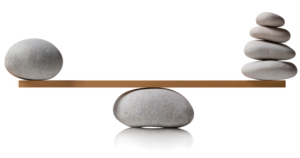 There are literally thousands of guitarists out there who can shred up and down their guitar, some of them even better than a great, like John Petrucci or Yngwie. But, there is a reason you’ve never heard of them before: Technique isn’t everything!
There are literally thousands of guitarists out there who can shred up and down their guitar, some of them even better than a great, like John Petrucci or Yngwie. But, there is a reason you’ve never heard of them before: Technique isn’t everything!
Being a great player isn’t about being able to out-play everyone else, it is about having complete command of your playing AND finding your unique voice as a musician. To achieve this, you need to make sure that you have your playing skills in balance; that they work together harmoniously.
It’s best to keep the organization of what to learn on the guitar as simple as possible, so aside from Technique, there are really only four other areas that you need to develop. If you want to know what they are, get my free eBook, The Five Pillars of Great Guitar Playing. Not only will you learn what each of the pillars are, you’ll also learn how they work together to make you a great player.
Conclusion
It is my hope that at least a few of these nine points rang true with you. If some of them didn’t, don’t worry about it too much. I know, for myself, there were things that my teachers tried to teach me that I just wasn’t ready to learn or absorb fully at the time.
Return to these point every now and then to see if their meaning becomes more clearly visible to you. Once they do, an entire world of musical and playing possibilities will begin to open up.
